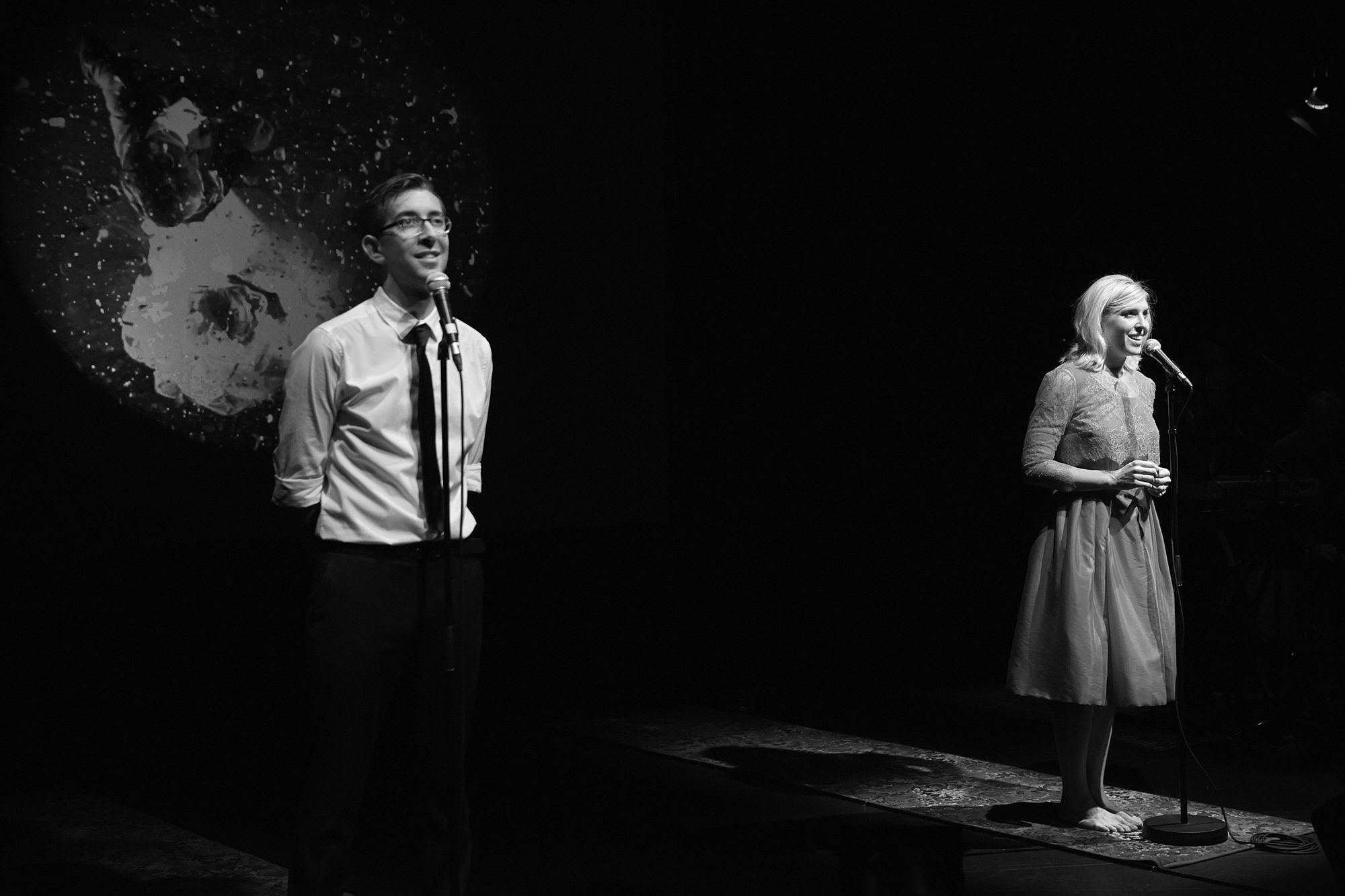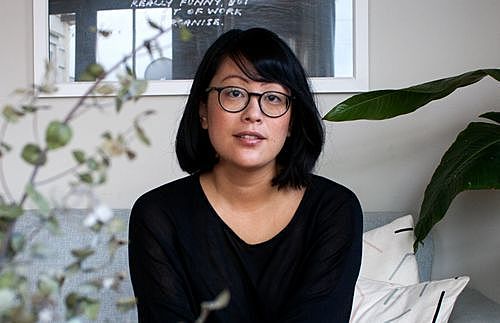Review: Daffodils
Dark, beautiful and complex, Daffodils weaves a personal story into half a century of New Zealand music to create a stunningly cohesive portrait of our nation.
Daffodilsis essential viewing. Dark, beautiful and complex, it weaves a personal story into half a century of New Zealand music to create a stunningly cohesive portrait of our nation.
There’s magic in the real worlds of others. We’ve experienced it before. Bare Hunt Collective’s docudrama Munted took us to the aftermath of the 2011 Christchurch earthquake, while Miranda Harcourt’s Verbatimand Portraits presented us with horrifying acts and human mistakes, victim and perpetrator sharing the stage. But these have been contained: pockets of our history, devastatingly rendered. We’ve gone wider. We’ve experimented with form. There was Massive Company’s The Brave, where eight young men shared their coming-of-age with touching vulnerability and impressive physicality, and Ian Hughes’ Ship Songs, a one-man show that combined sea shanties (composed and played live by Don McGlashan) and projection to tell the true story of how Hughes’ mother crossed the Atlantic in the early 60s. They were all brilliant, true, but all of which is to say: there’s never been anything like Daffodils.
Inspired by the true events of her parents’ relationship, Rochelle Bright’s play is less docudrama and more modern-day New Zealand cabaret. We open in 1964, when Eric (Todd Emerson) and Rose (Colleen Davis) meet late one night in Hamilton. She’s 16, drunk and stomping around in a daffodil patch. He’s 18, and offers to drive her home. It’s a simple set: two spotlights, two microphones, two narrow walkways that the actors never leave. Between them is a beautifully shot black-and-white projection by Garth Badger, incorporating birds-eye shots of the unfolding action with what looks like real-life footage of the actual couple being portrayed. To their right, a three-piece live band.
Storytelling and song are blended in Daffodils to great effect, creating a powerful subtext and dramatic irony in the gaps between what’s being said, what’s not being said, and what’s being sung. It’s in this space, in this collision, that you feel the magic. What makes Daffodils so transcendentally delightful is the way it reinvigorates the Nature’s Best-style back-catalogue of 'great New Zealand music'. Artists who mostly invoke cultural cringe today – maligned to discount bins, bread commercials, and WINZ playlists – are given long-lost emotional context, and you’re surprised to find yourself genuinely appreciating the music and the narrative driving the lyrics (see also: non-theatregoer’s scepticism that Colleen Davis’s yearning rendition of Anchor Me made me feel ‘real human emotion’).
This is in part due to Bright’s thoughtful curation of each song (Dave Dobbyn’s "Language" hits you especially hard) and the skilled arrangements of Stephanie Brown (better known as Lips), which lends a subtle cohesion to the show. Meanwhile, Dena Kennedy’s direction creates a simplicity in the presentation that forces your focus on what’s being said and sung.
But it’s also due to the audience. When Arcade Fire teamed up with Google to create an interactive music video set in the neighbourhood you grew up in, they drew on a nostalgia you simply can’t evoke from scratch. In a similar way, Daffodils draws on a collective landscape shared by multiple generations and gives it a singular, tangible voice in Rose and Eric.
To anyone who ever doubted New Zealand had a culture, a personality: see this show. Because it’s here that half a century of creative output – from The Mint Chicks’ “Crazy? Yes! Dumb? No!” to The Swingers’ “Counting the Beat” to Crowded House’s “Fall At Your Feet” – is pulled together and underscored with the same emotional bassline: a national identity and psychology that rings true. It will make you feel unexpectedly hand-on-your-heart patriotic – and not in the marketing sense that garners false pride, but in a way that makes you feel like here, finally, is an identity that feels honest, relatable and resoundingly New Zealand. It isn’t a portrayal of our darkest moments, or our most inspiring. It’s who we are on an overcast Monday. When we’re reading the paper, walking to work, living out the minutiae of our lives. It’s young, naïve and optimistic. It struggles to understand itself and to know when and how to communicate, but it's getting there. There’s a lot of silence. It hurts.
There’s another layer to the story too, in its truthiness and the way it’s being told. On a first reading it can feel unsatisfying: there’s always that sense when you’re using a true story that you’re excusing yourself from producing a compelling narrative. But there’s a complexity here that creates an implicit tragedy in the space between what’s happening on stage and what can never be known. It’s utterly heart-breaking, and makes for wonderful theatre.
And it all comes together. Todd Emerson and Colleen Davis are brilliant: Emerson is captivating as Eric, charmingly goofy yet aloof, performing each song with an understated confidence, while Davis’ Rose transforms and grows with each song, a teenage brazenness and fire that burns low and bright then slowly starts to fade.
It’s an astounding, unmissable debut for Bullet Heart Club. Go. I’ve already been twice, and I may even go a third.
Daffodils plays at the Q Theatre Loft from 13-29 March
Book tickets here.
See also:
Simon Wilson for Metro
Stephen Austin for Theatreview
Paul Simei-Barton for the NZ Herald
James Wenley for Theatre Scenes

